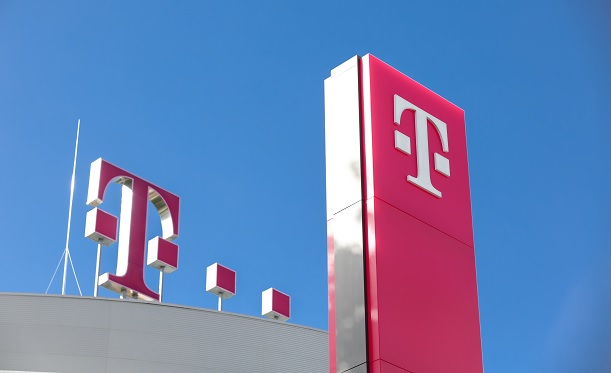Group revenue grew by 37.5% to €27 billion, but costs of the US merger and exchange-rate effects resulted in a 0.6% decline.
The protracted merger was concluded on 1 April. The adjusted EBITDA AL grew 56.4% to €9.8 billion. T-Mobile is now the second biggest mobile operator in the US.
However, adjusted net profit decreased by 3.8% year on year in Q2 to €1.3 billion. Unadjusted net profit declined 20.1% to €754 million.
In organic terms, that is once adjusted for exchange rate effects and changes in the composition of the Group, revenue “remained more or less stable”, down “just” 0.6 percent, and adjusted EBITDA AL increased by 8.4 percent.
Magenta specs?
Tim Höttges, CEO of Deutsche Telekom, said, “Our figures are formidable and our strong business operations in Germany and the rest of Europe also play a part in this.”
The pandemic so far has had a limited impact on Deutsche Telekom’s (DT’s) figures the company claims: the effects were primarily felt in the corporate business, where new orders slowed, and in mobile roaming revenues, which came under pressure as a result of travel restrictions.
Free cash flow AL totaled €2.4 billion, an increase of 56.9% year on year.
DT said in a statement that the cost of integrating Sprint and its US subsidiary T-Mobile would, as expected, have a negative impact on net earnings, especially in the first three years.
Raised guidance
Guidance for the businesses outside the US remain the same, but the Group now expects to post adjusted EBITDA AL of around €34 billion in 2020, up from the previous guidance of around €25.5 billion.
In Germany between April and June, DT added 87,000 broadband subscribers and says 386,000 customers have switched to fibre although it is counting full-fibre (FTTH) and fibre to the cabinet in that total.
DT now offers 15.2 million ‘fibre’ lines now exist – 1.8 million more than a year ago. Mobile revenues were down 1.1% year-due to the loss of roaming income, but DT insists this is less than its competitors and shows it has extended its market leadership.
There was no mention in the statement about the impact of a ban of a ban on Huawei equipment in the Germany – and DT has chosen that route for 5G, which could turn into a very hot political potato as well having economic repercussions for the company.



